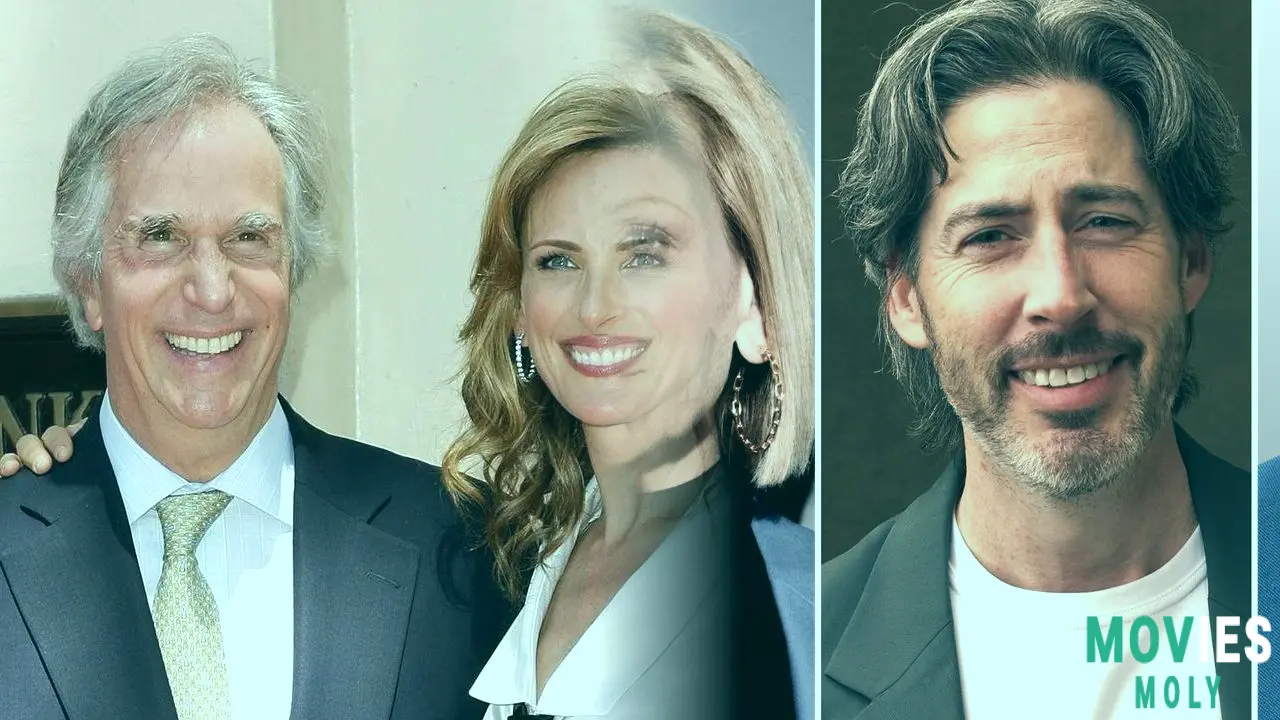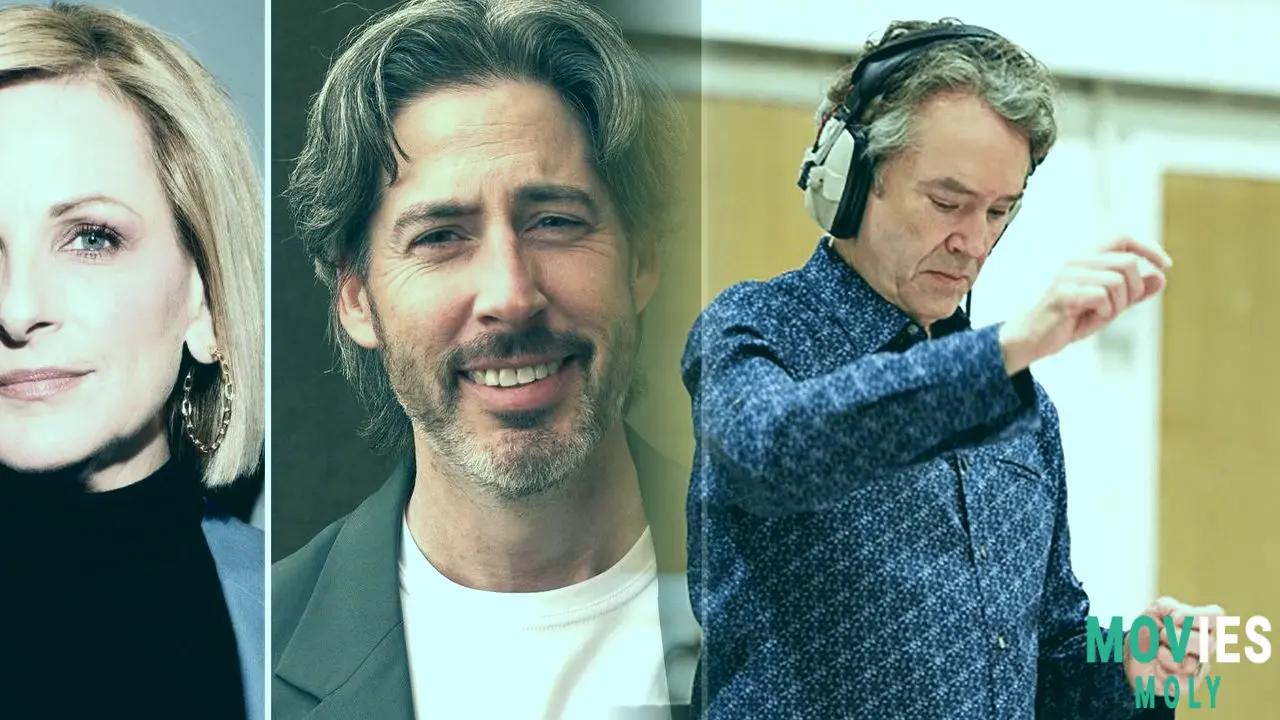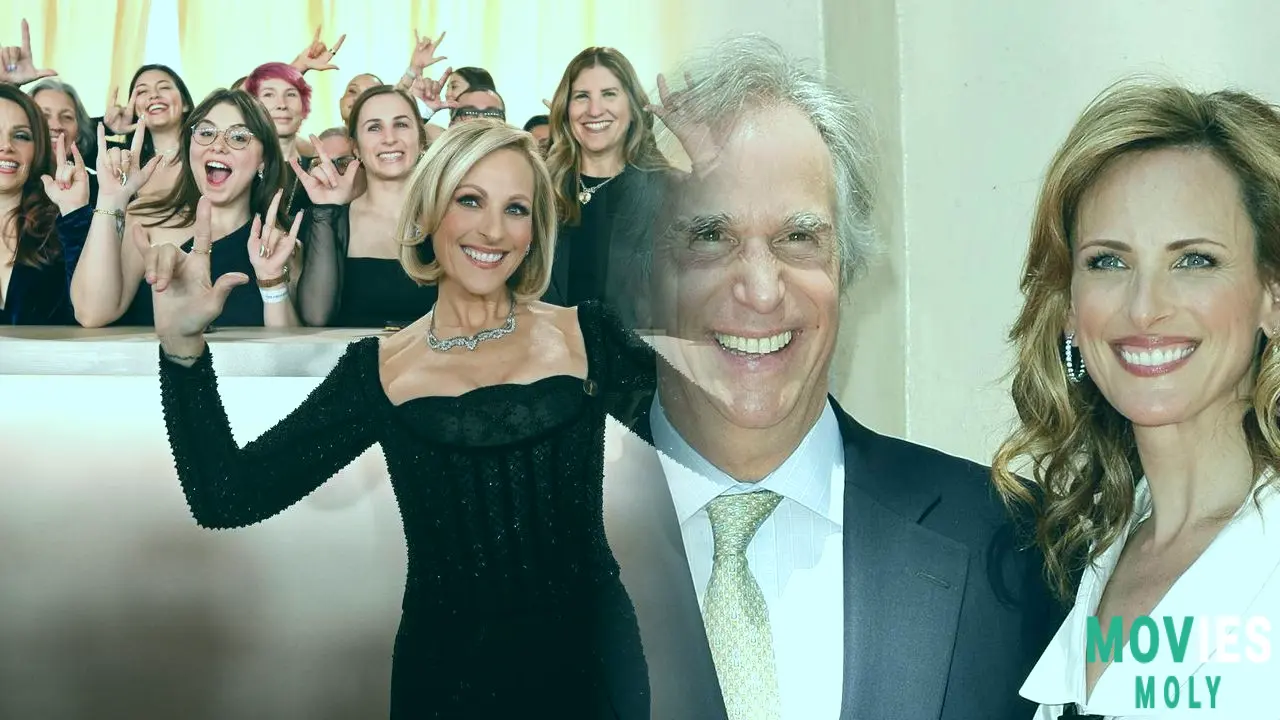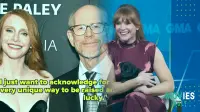Marlee Matlin has always inspired us. The Academy Award-winning actress, who became the first deaf artist to win an Oscar at the age of 21, is revealing her personal story in a new documentary titled Marlee Matlin: Not Alone Anymore. A large part of her story focuses on the important significance Henry Winkler has had in her life. He was both an inspiration and an excellent friend. It is a story about overcoming adversity with tremendous support.
Marlee and Henry met many years ago while Winkler was touring the country with the Happy Days group. Matlin was a teenager with huge hopes. They remained in touch, and Winkler provided a safe haven for Matlin at a terrible period in her life. In the 1980s, she had a difficult two-year romance with her Children of a Lesser God co-star, William Hurt. She said in her 2009 book that he was frequently abusive to her. Hurt did, however, encourage her to get treatment for her alcohol and drug addictions. It was there that she realized how toxic her position was.
"There were a lot of things I learned in rehab," Matlin admits in the documentary. "That indicated that something was wrong. The physical, verbal, and mental/emotional abuse was unacceptable. "I learned that there." Matlin believed that after recovery, her relationship with Hurt would never be the same. "I decided I had it," she explains. "I walked out of that house and I never went back." She decided to seek assistance from Winkler instead. He had asked her to his home in California to discuss things further.
Henry Winkler opens his home to Marlee Matlin in a time of great need.The Unusual Living Arrangement That Created An Unbreakable Friendship
Henry Winkler recalls that encounter well. "Knock on the door. He recalls Marlee in the documentary. "I don't have anywhere to stay. I recently split up with my boyfriend. "Can I just stay with you for the weekend?" Of course, Winkler insisted everything was OK. He then adds, in a humorous deadpan tone, "two years later, she finally moved out," before bursting into a broad smile. Matlin also talked about the time, adding, "the family welcomed me as if I were one of their own. "I will never forget that."
Winkler also remembered what he told her at the moment. "She was not completely whole at that time," he told me. He then said some critical things to her. "If you know what you want without ambivalence, if you're clear about what you want, everything else will fall into place." His words proven correct. Matlin discovered her way in Los Angeles. She landed a role on the television show Reasonable Doubts. She also met her spouse, Kevin Grandalski, a police officer. They married on August 29, 1993, in the backyard of Winkler's house. The film features home videos of the ceremony.
"There was no other thing to do," Winkler says in the documentary. "There was no other place for her to get married except in our yard, in her home away from home." This demonstrates how strong their bond was. Their friendship has lasted several years. Matlin often refers to Winkler as her "fairy godfather." He has always pushed her to follow her acting goals. He first saw her perform when she was twelve years old. She appeared in a Chicago variety program. Winkler recounted how Matlin's mother once urged him to advise her daughter against performing. Her mother believed it would be too difficult for a deaf person. Winkler said firmly: "You got the wrong guy."
Marlee Matlin's Continued Strength and Impact in the Entertainment Industry.

Her significant work on the Academy Board and inspiring presence in Hollywood
Matlin and Winkler maintain a strong relationship even today. She regularly mentions how important he was to her. "He made it easy for me to contact him," Matlin told Fox News Digital through an interpreter. "He was constantly available. It was like an open door, to both his and mine hearts. "And he was aware of that." She noted that she felt "very, very fortunate" to have such a tight relationship. "I don't think if I had Henry in my life, I would be here," she told me. "I don't think I would have gotten this far. "I do not think so."
She also described how Winkler handled her as an individual. "He was probably one of the most famous people in the world at times," Mr. Matlin added. "In my perspective, he was more famous than the President and one of the world's most beloved figures. So, who would've guessed he'd take the time to pay attention to someone like me, the tiny deaf child he met when he didn't even know American sign language?
"He knew nothing about being deaf or deaf culture," Matlin added. But you know what? It did not matter to him. He accepted, of course, that I had communicated. He did not disregard the fact that I was deaf, but he also treated me with love and respect, as everyone should. And I seized the moment when we first met, knowing he was the real deal." This genuine kindness benefited Matlin in numerous ways. She learned to believe in herself and see the world clearly. She feels genuinely cared about by him.
Marlee Matlin's influence extends beyond her acting roles. The Academy of Motion Picture Arts and Sciences has recently chosen its Board of Governors for 2025-26. Marlee Matlin was re-elected to represent the Actors branch. This group helps to define the Academy's vision and guarantees its financial stability. Being on this board demonstrates her continuous prominence and significance in Hollywood. It is a monument to her extensive and influential career. She has earned a well-deserved reputation in the industry.
Marlee Matlin's Strong Voice and Message of Self-Advocacy

Reflecting on Her Past and Her Determination To Assist Others Speak Out
Matlin's book, I'll Scream Later, which was published years before the #MeToo movement, revealed even more horrific aspects of her life. She described being molested as a child. She also discussed the alleged abuse by William Hurt. "I didn't realize you could ask for help," Matlin told Fox News Digital. "I didn't realize I could seek aid instead of waiting for someone to respond while shouting for help. But no one responded while I was yelling. Nobody did... I don't want to linger on it, but it is what occurred."
Shoshannah Stern, who directed Matlin's new documentary, is also deaf. Stern applauded Matlin for having the bravery to speak up about these issues before it became commonplace. Stern observed that others frequently questioned Matlin's decisions, asking, "Why didn't you leave?" or "Why did you stay in that relationship?" Stern felt that these queries occasionally re-traumatized Matlin. "The questions that they asked made it worse," Stern admitted. They'd inquire: "Did you think that those events happened to you because you were deaf?" Matlin would say, "I didn't know." Stern pointed out that people frequently disregarded the simple but telling observation. They didn't comprehend what Matlin meant. "She didn't know that abuse was abuse at the time," Stern said. "And that's what happens to so many deaf people in the world."
Matlin is resolved to prove her critics incorrect and continue her essential work. "I was determined to prove [my critics wrong]," Matlin stated of seeking a Hollywood career. "It made me want to roll up my sleeves even more, to prove to them that I'm a deaf woman who enjoys acting as much as anyone else..." I did not go into this company for nothing. It was a dream come true. So why can't I do another film?"
She also considers how she would behave differently today. "But if it happened today, I would've made a lot of noise back then," Matlin thought. "I struggled to defend myself against those who portrayed me negatively." As a result of all the criticism, I had to mature so quickly." She mentioned that she was very young when she started Children of a Lesser God, turning 20 during production. She had an older boyfriend and was attempting to become sober. Everything was happening simultaneously. She believed that others were more interested in bringing her down than in assisting her through her difficulties. Marlee Matlin's continuous efforts and bravery in sharing her story continue to have a significant impact.



